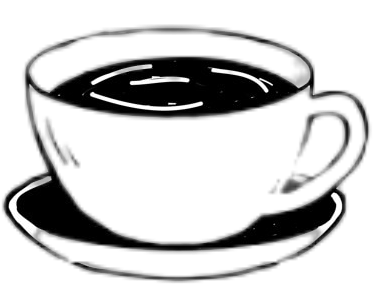
Please continue and make the article longer, providing more useful information and a personal perspective from someone who has personally used the machine. Avoid making the tone too cheesy or overly enthusiastic. Keep the recommendation light, focusing on the product’s benefits and practical use cases.
Understanding the Cultural Context
As someone who has been immersed in the world of coffee, both as a connoisseur and a casual drinker, I often find myself intrigued by the diverse cultural practices surrounding this beloved beverage. One particular question that frequently arises is, “Why can’t Mormons drink coffee?” This query doesn’t just stem from curiosity about religious practices; it also delves into broader discussions about health, lifestyle choices, and personal values. Growing up in a predominantly Mormon community, I’ve had firsthand experiences that shape my understanding of this topic, and I’d like to share my insights while also exploring the reasons behind this unique prohibition.
The Church of Jesus Christ of Latter-day Saints, commonly known as the LDS Church or the Mormon Church, has specific health guidelines known as the Word of Wisdom. This revelation was given to Joseph Smith, the founder of the church, in 1833. It advises members to abstain from “hot drinks,” which church leaders have interpreted to mean coffee and tea. While some may find this restriction odd, it’s deeply rooted in the church’s beliefs about health and wellness.
A Personal Journey with Coffee Culture
Before diving deeper into the specifics of the coffee ban, I’d like to share my own journey with coffee. Growing up, my family had a strong connection to coffee culture; weekend brunches often included rich, aromatic brews that filled the air with an inviting scent. However, as I matured and began exploring my identity within the community, I learned about the Word of Wisdom and its implications for members. This revelation sparked a complex relationship with coffee for me and many of my friends.
In my early teens, I remember attending a church youth activity where the topic of the Word of Wisdom was discussed. The leaders emphasized the importance of treating our bodies as temples and highlighted the potential health risks associated with caffeine consumption. It was during this time that I began to see coffee as not just a beverage, but a symbol of temptation that I was encouraged to resist. This perception significantly impacted my choices in the following years.
Why Can't Mormons Drink Coffee? The Health Perspective
One of the primary reasons behind the prohibition of coffee in Mormon culture is the health perspective advocated by the church. The Word of Wisdom encourages members to embrace a wholesome diet, rich in fruits, vegetables, and grains, while discouraging substances that could harm the body. In this light, coffee, primarily due to its caffeine content, is seen as a potential health risk.
Caffeine is a central nervous system stimulant that can lead to dependence and adverse health effects when consumed in excess. Many members of the church believe that abstaining from coffee contributes to better overall health, promoting physical and mental well-being. Additionally, the church emphasizes a holistic approach to wellness, encouraging practices such as regular exercise, proper nutrition, and sufficient rest. By avoiding coffee, members aim to maintain a lifestyle that aligns with these values.
Social Dynamics and Coffee
While the health aspects of the coffee ban are compelling, the social dynamics surrounding coffee in Mormon culture also play a significant role in understanding why many Mormons choose to abstain. In social settings, coffee often serves as a cultural touchstone, a beverage that brings people together. However, for members of the church, opting out of coffee can sometimes feel isolating.
I’ve attended numerous gatherings where coffee was the centerpiece, from holiday parties to casual get-togethers. While friends poured steaming cups for themselves, I would find myself sipping herbal tea or opting for water. Initially, this distinction felt uncomfortable, as if I were missing out on an integral part of the experience. Over time, though, I began to appreciate the variety of alternatives available and found camaraderie in sharing stories about our choices and preferences.
Alternatives to Coffee
For those in the Mormon community, the absence of coffee doesn’t equate to a lack of delicious beverage options. I discovered a wealth of alternatives that cater to various tastes and preferences. Herbal teas, for example, offer a plethora of flavors and health benefits, from calming chamomile to invigorating peppermint. Additionally, I’ve enjoyed trying various coffee substitutes, such as roasted barley or chicory root, which mimic the rich, earthy flavors of coffee without the caffeine.
One of my favorite discoveries has been mushroom coffee—a blend that combines ground mushrooms with coffee alternatives. It’s touted for its numerous health benefits, including improved focus and reduced anxiety, making it a great option for those seeking a mindful approach to their beverage choices.
Personal Experiences and Insights
Reflecting on my own experiences, I’ve come to appreciate the decision to avoid coffee not just as a restriction, but as an opportunity for personal growth. Embracing the Word of Wisdom has allowed me to explore other beverages, discover new flavors, and even experiment with creative drink recipes. For instance, I’ve become fond of making blended fruit smoothies that serve as energizing breakfast options, proving that there’s a world of delicious alternatives to coffee.
Moreover, engaging in conversations about the coffee ban with friends who do consume it has opened up new dialogues about personal choices and health. These discussions have led to greater understanding and respect for differing perspectives, reinforcing the importance of open-mindedness in any community.
Navigating a Coffee-Infused World
As someone who navigates a coffee-infused world while adhering to my personal beliefs, I’ve learned to approach the subject with curiosity rather than judgment. Many of my friends enjoy coffee, and I’ve come to appreciate their experiences, even if I choose to abstain. Coffee shops have become places of gathering and connection, and I often find myself enjoying the atmosphere and engaging in conversations with friends over our respective beverages.
The key lies in finding balance and respecting individual choices. For those who partake in coffee, it’s essential to acknowledge the potential effects on health while celebrating the joys of social interaction that coffee can bring. Simultaneously, for those who choose to abstain, there’s a wealth of options available that can provide similar enjoyment and community connection without compromising personal values.
Product Review Conclusion
In conclusion, the question of why Mormons can’t drink coffee opens up a broader conversation about health, personal values, and community dynamics. For many members of the LDS Church, the decision to abstain from coffee is rooted in a commitment to living a healthy, balanced lifestyle that aligns with their beliefs. This choice fosters a sense of community among those who share similar values while also promoting individual exploration of alternative beverages that can be just as enjoyable.
My personal journey has shown me that the absence of coffee doesn’t diminish the richness of life’s experiences. Instead, it encourages a deeper appreciation for the myriad of options available and invites meaningful conversations about personal choices. Ultimately, whether one chooses to indulge in coffee or explore alternative beverages, the most important thing is to find what resonates with your values and enhances your life.
FAQ Section
Q: Why can't Mormons drink coffee?
A: Mormons abstain from coffee due to the teachings of the Word of Wisdom, which advises against consuming “hot drinks.” This guideline has been interpreted to include coffee and tea, emphasizing a lifestyle focused on health and wellness.
Q: What are some alternatives to coffee that Mormons can enjoy?
A: There are numerous alternatives available, such as herbal teas, roasted barley, chicory root coffee substitutes, and even mushroom coffee. These options offer a variety of flavors and health benefits without the caffeine found in coffee.
Q: How does the coffee ban impact social gatherings for Mormons?
A: The coffee ban can create a sense of distinction during social gatherings, as coffee is often a focal point in social settings. However, many members find ways to connect through alternative beverages, fostering camaraderie and understanding among friends.
Q: Can Mormons consume decaffeinated coffee?
A: While decaffeinated coffee technically does not contain caffeine, many members still choose to abstain due to its classification as a “hot drink.” Instead, they often opt for herbal teas or other caffeine-free alternatives.
Q: Is it possible to enjoy a coffee culture without drinking coffee?
A: Absolutely! Many Mormons embrace a rich variety of beverages that foster community and connection, such as herbal teas, smoothies, and other non-caffeinated drinks, allowing them to participate in social settings without compromising their beliefs.
